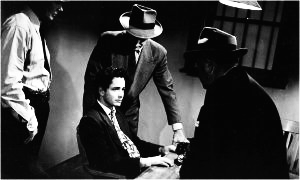 What is an Examination Under Oath?
What is an Examination Under Oath?
Most insurance policies have several conditions that the insured must satisfy before an insured can file a lawsuit against the insurance company, and that is part of the insurance company’s duty to investigate. One of the most common condition is having the insured sit for what is known as an Examination Under Oath (EUO.)
An EUO is a sworn statement given by someone who has made a claim due to water damage, wind damage, hurricane, roof claim, lightening, car accident, or some other form of risk that is insured. Insurance companies typically use this procedure as part of their claims handling process and investigation. But they also employ an EUO if they suspect fraud, or if they are considering disputing coverage before going into litigation.
It should be noted that the EUO could be tape recorded, or even video taped. But it will certainly be transcribed, and you will be sworn to tell the truth. The sworn testimony that you give will also be used by the insurance company to serve their interest, and against you, if possible.
Who has to sit and attend an EUO?
Every insurance policy has a “named insured.” Therefore, the “named insured” has to appear for the EUO. However, in some instances, the “named insured” may not be the person with the most knowledge as to the claim of loss. As such, the insurance company will require the person with the most knowledge of the loss to appear in addition to the “named insured.”
So for instance, the home could be owned by your elderly mother. Your elderly mother is the “named insured” since she owns the home. If the insurance policy is written in a broad enough context, it could be possible that you will also have to appear for an EUO even though you don’t own the home, and you are not listed as “named insured.” The reason being is that you may the best person with the most knowledge as to the loss in question.
At the EUO, an insurance company is limited in scope to the types of questions that can asked. In fact, a recent Florida appellate court ruling admonished insurance companies for their practices of attempting to intimidate insured’s during EUO’s when the insured appears without an attorney. Nonetheless, the insurance company will no doubt ask questions about your background, family history, educational history, employment history, claim history (other insurance claims), financial history (bankruptcies and the like), military history, criminal convictions, and credit history. This is all before they ask you one question about your claim. Most EUOs take several hours, and some could even take several days.
What if you don’t cooperate?
Most insurance policies contain what is known as a “cooperation clause.” What that means is that the named insured has a duty to cooperate with the insurance company during its investigation of the claim. And one of those requirements is often times to sit for an EUO.
Should the named insured fail to appear for scheduled EUO, then the insurance company could deny the claim. The reason being is that the named insured failed to comply with its duty to cooperate with the insurance company when it failed to sit for an EUO.
Additionally, just showing up for an EUO is not enough. The insurance company may require the named insured to bring documents such as tax returns, checking account information and the like to the EUO. The failure to bring those documents may also serve as grounds to deny the claim.
Moreover, an insured’s failure to answer certain questions during an EUO may also serve as the basis for a denial of the claim by the insurance company. However, a recent Florida appellate court case made it understood that an insurance company should not intimidate an insured during an EUO to the point that an insured feels forced to walk out of an EUO.
Should You be worried?
Yes, you should worry if your insurance company asks you for an EUO. The insurance company is not going to hire a lawyer to interrogate you because they want to help you substantiate your claim. They suspect fraud or are collecting information, from you, in order to deny your claim. You have the right to have your own lawyer at an EUO. However, you are not required to have your own attorney. In fact, and as this recent case from the Third District Court of Appeal makes abundantly clear, the insurance company will be delighted if you appear without a lawyer. If you do not have an attorney, we recommend you consult with an attorney before attending any EUO.
—–
EXTENDED BODY:
Consider Your Options. Contact Us Today.
If you are facing a dispute over an insurance claim in Florida, contact Alvarez & Barbara, LLP at 305-263-7700 or toll free at 866-518-2913 for a free and confidential consultation to discuss your rights.